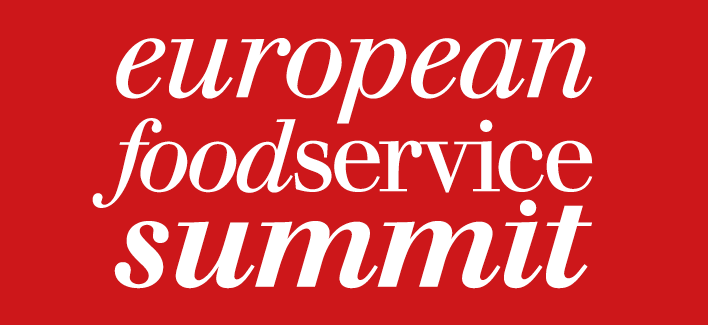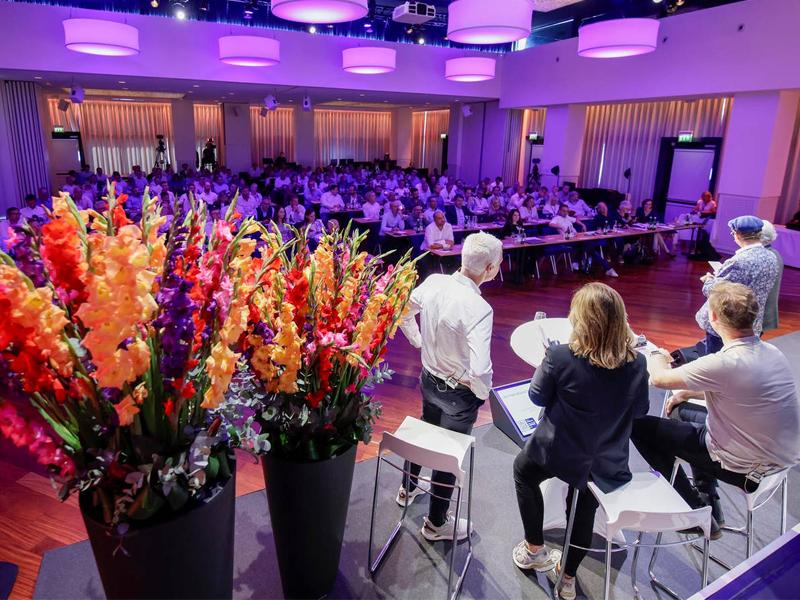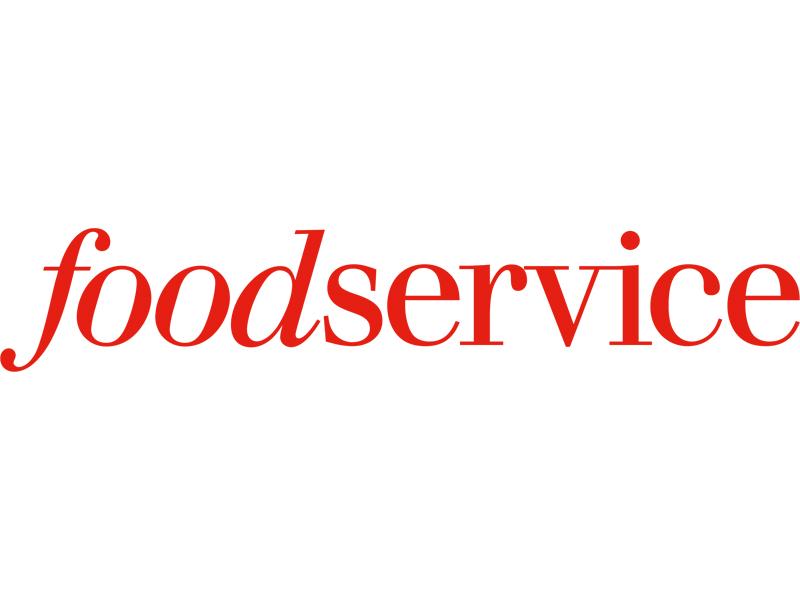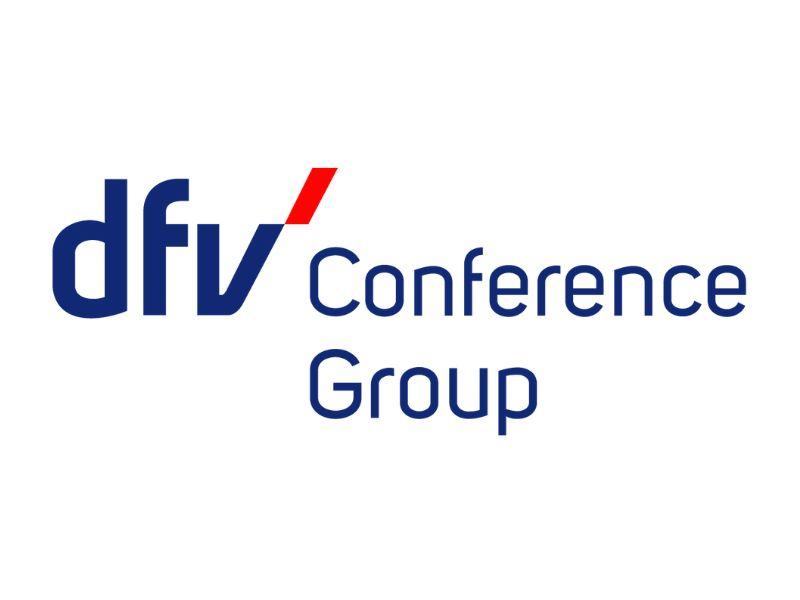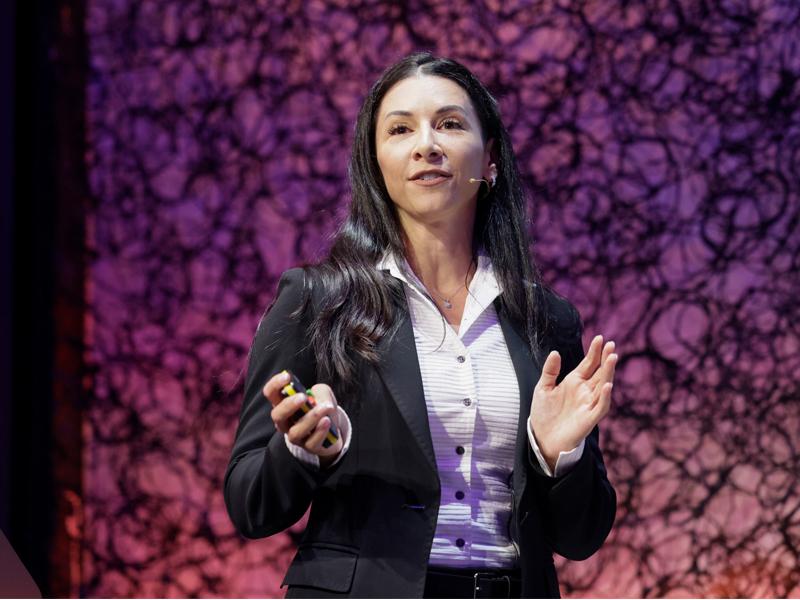Takeaways from Zurich – day 1
For the 24th time, the Who’s Who of the international food service industry met in Zurich for the European Foodservice Summit. Around 220 participants from 25 countries came to Lake Side for inspiring presentations and intensive exchange between executives at the highest level.
Here you can find the detailed photo gallery of the EFSS 2023.
The first day of the event started with an energetic speed networking session. The event, which was held for the first time, brought together restaurateurs from different countries in an entertaining way and was extremely well received by the participants.
After the welcome by the organisers Dr Chris Muller (FIU Chaplin School of Hospitality & Tourism Management and Katrin Wißmann (dfv Mediengruppe), André Lacroix took to the stage. The former president of Burger King International and now CEO of the Intertek Group gave the industry an outside perspective. No longer directly involved in the restaurant industry for years, he put himself back into a foodservice leadership position for a moment and defined the most important course settings for modern hospitality leadership.
Lacroix acknowledged that he expects big changes for the hospitality industry in the next 25 years, perhaps more than in previous decades. At the same time, he said, the opportunities are huge. Certain basic values of a company are still valid, such as respectful and appreciative treatment of all stakeholders such as suppliers, guests, employees, investors and franchisees.
Lacroix considers four specific points to be essential, which he would focus on today if he were once again at the helm of a restaurant company:
- Supply chain management. After the unprecedented supply chain disruptions caused by the Corona crisis, Lacroix sees this as a central construction site for multi-unit companies. This applies both to the selection of supplier partners, but also to partnership support to ensure high, consistent quality. In times of social media, the customer does not forgive quality deficiencies.
- Every top executive should establish, promote and live genuine sustainability efforts at the heart of his or her own corporate values. And also communicate them proactively to the outside world.
- Data Science. In addition to digitalisation strategies, restaurant companies should also concern themselves with deriving entrepreneurial recommendations for action from their data, also with the help of artificial intelligence. “Every company should employ at least one data scientist,” said Lacroix.
- Good leadership. “Be paranoid every day about how you lead,” Lacroix said. A good leader combines strong values, vision and the ability to inspire employees. Only those who put people first will get top performance back.
After Lacroix’s presentation, Katrin Wißmann, Managing Editor european foodservice media, presented the results of the exclusive ranking of the 99 top-selling foodservice companies in Europe. An increase of almost 28 percent was achieved by Europe’s top 99 foodservice companies in 2022.
After a relaxing lunch break, an AI session with Dr Theo Ackbarow from Nesto was on the agenda. In “Artificial Intelligence meets Lean Management – Unlocking Operational Mastery”, the combination of artificial intelligence and lean management to achieve operational excellence was discussed.
The afternoon was dedicated to international expansion. Rebecca Viani of Whitespace Partners presented “A Decade of Cross Border Restaurant Development”, a recent study looking at 50 foodservice brands as they move into new markets. The focus was on different growth strategies, success factors and capital mistakes. Key findings:
- There is a clear difference between full-service brands and limited-service brands, i.e. fast casual and quickservice. The latter take the step across their own national borders more easily and more frequently.
- British and US brands still lead the field in Europe and the Middle East.
- Attractive targets for expansion are currently the Middle East and the UK. But Saudi Arabia has also been added.
- Whether through a JV or franchising, but deciding which market it should be – each brand has to find its own approach.
In a panel discussion afterwards, the three strong F&B brands Big Chefs, Coffee Fellows and Marugame Udon that have already made the leap across borders shared their first-hand experiences, insights and lessons learned about highlights and challenges in the expansion process.
Judd Williams and Keith Bird from Marugame Udon spoke about expanding from Japan to the UK, Gamze Cizreli from Big Chefs spoke about expanding from Turkey to six very different markets and Dr Stefan Tewes from Coffee Fellows spoke about expanding from Germany to the US.
Continuing with strategic insights
Richard Morris and Emma Woods from Tortilla highlighted the aspect “From Private To Public To Future” in the afternoon. With 86 units and an annual turnover of 65 million euros (2022), Tortilla is shaking up the British market. Expansion is a priority – 19 restaurants were opened last year alone. In order to expand to the European mainland, the company went public. Going public requires a lot of preparatory work. At the centre, the company has to ask itself three questions. 1. is the product top and scalable? 2. do they really want to go public or is the company better off with private investors? Is there an expansion market waiting for the product? For Tortilla, the question is answered – they want to expand into Euopa. Very promptly.
Loyalty Programs work. But they are no panacea.professionals were asked about the most pressing challenge of the moment: inflation. How is it affecting the industry? And how are both foodservice operators and suppliers dealing with it? Among other things, Blokker found that operators are struggling to communicate increased prices to diners – 76 per cent have now raised prices. Other options for restaurateurs to deal with inflation include: accepting lower margins (52%) and reduced opening hours (46%). Blokker was surprised by the fact that only 13% of the respondents are using Grab & Go and self-service. In their opinion, however, these options offer a lot of potential. Because guests would demand this and could handle it well.
Loyalty programmes: the dos and don’ts
“Loyalty programmes are a powerful tool” was how Oliver Dervey from Swisscard started his exciting presentation on the use and benefits of loyalty programmes. But before deciding to use them, there are important questions to be answered: Which solution is the right one for your own brand – your own or a cooperation? What goals am I pursuing with it? As a take-away in a nutshell, the loyalty expert shared four tips for planning loyalty programmes:
- Loyalty Programmes work. But they are no panacea.
- Relevance matters. Design accordingly.
- Define goals. Measure results. Improve. Repeat.
- Would your mum understand it?
Brainfood on stage was followed by a long and exciting networking evening at the Zurich Zoo Restaurant Masoala.
